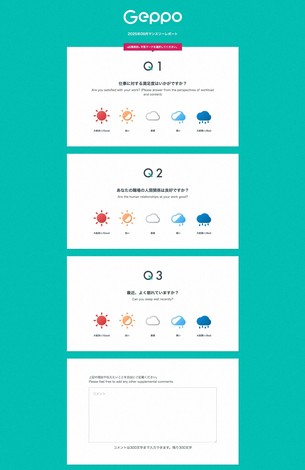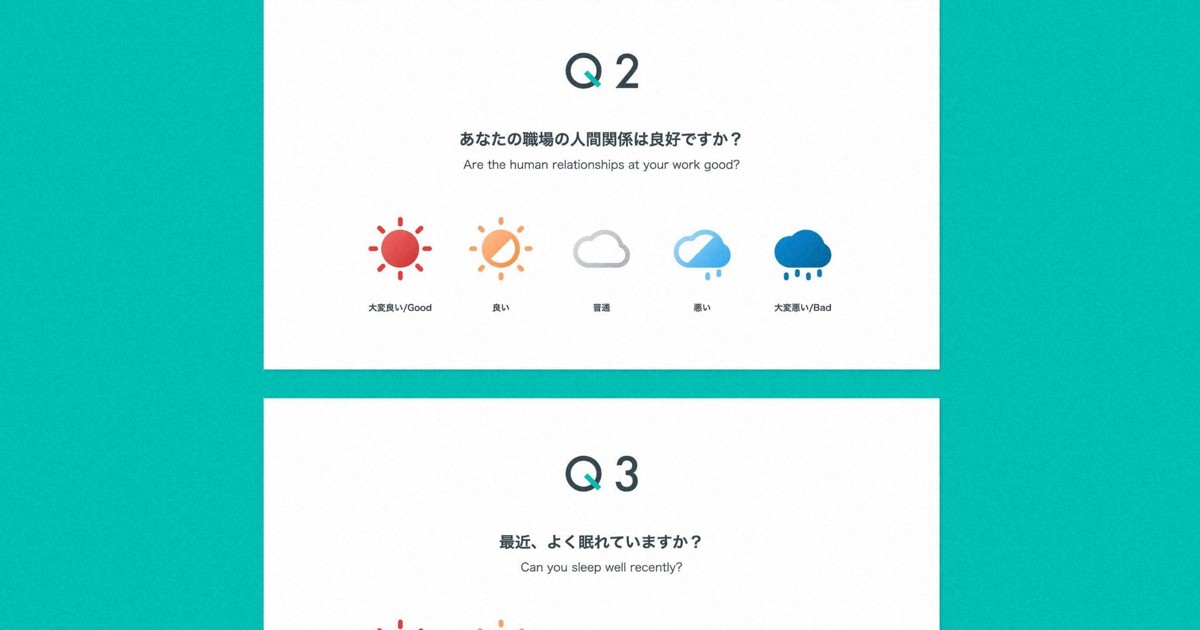
This photo shows the Geppo app for employees to input their emotional well-being. (Kyodo)
TOKYO (Kyodo) — Having wrapped up recruitment activities and orientation for upcoming university graduates who will join the workforce next spring, many Japanese companies are now focusing on ensuring their young hires do not quit within a few years, a growing trend that has become a corporate headache.
Some firms are utilizing apps to track the emotional state of new employees, while others are allowing hires to apply for specific locations or departments instead of the long-standing practice of assignments being determined by companies.
According to the Ministry of Health, Labor and Welfare, 34.9 percent of university graduates who entered the workforce in spring 2021 left their jobs within three years, up 2.6 percentage points from the previous year.
In a multiple-choice survey on why young hires quit so soon, conducted online by Staff Service Holdings Co., the most common reason cited was “poor relationships with bosses or colleagues” at 26.3 percent, followed by “the company culture was not the right fit” at 26.1 percent.
Responses were collected in June from over 700 people aged between 18 and 25 who quit their full-time jobs within three years of being hired as fresh graduates.
Among measures to combat the high turnover is the Geppo app developed by Recruit Co. Electric parts and material manufacturer Nitto Denko Corp. has been using it since 2019 for employees up to their third year on the job.
The app asks employees to list their well-being across five levels in three categories every month. The human resources department is notified of the results, which are quantified and prompt one-on-one meetings if the numbers deteriorate.
A Nitto Denko human resources official said the app helped facilitate honest conversations between the company and its workers, resulting in a significant reduction in the resignation rate of young employees.
Among major insurers, Sompo Japan Insurance Inc. introduced a system that allows graduates to apply for their desired department upon receiving a job offer, while Dai-ichi Life Insurance Co. launched an initiative enabling new hires to be posted overseas within five years of commencing employment if they wish to work abroad.

